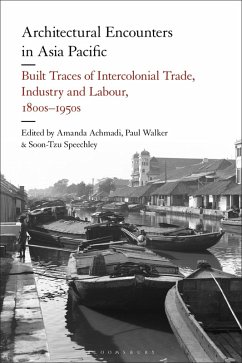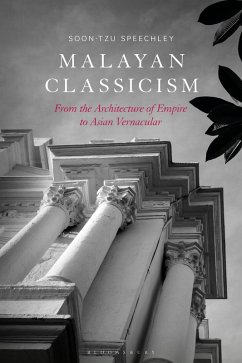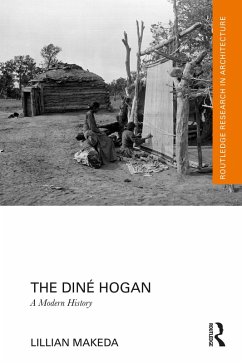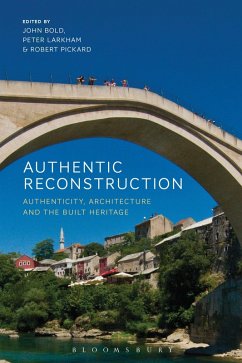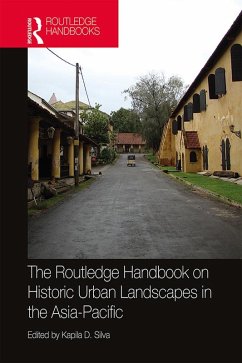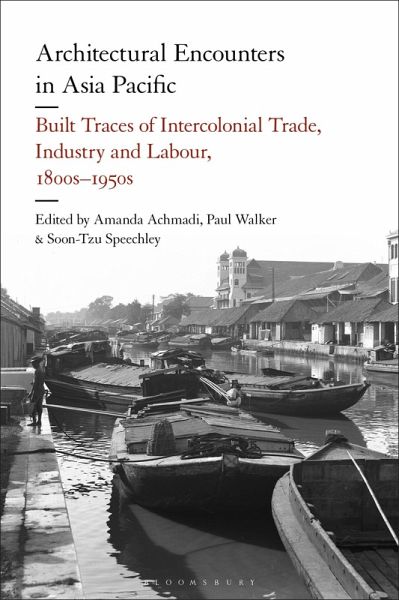
Architectural Encounters in Asia Pacific (eBook, ePUB)
Built Traces of Intercolonial Trade, Industry and Labour, 1800s-1950s
Redaktion: Achmadi, Amanda; Speechley, Soon-Tzu; Walker, Paul
Versandkostenfrei!
Sofort per Download lieferbar
70,95 €
inkl. MwSt.
Weitere Ausgaben:

PAYBACK Punkte
35 °P sammeln!
Architectural Encounters in Asia Pacific explores the architecture of colonial trade and industry, revealing a complex network of transnational connections across the built heritage of the world's most dispersed and culturally diverse region. A wide-ranging collection of case studies uncover these forgotten connections, drawing together stories of migratory architects, imperial commodities, and indentured labour. From Iran to Tasmania, Japan to Java, and Imperial China to the Pacific Islands, the chapters reveal how remnants of colonial trade and industry shed light on the many multi-faceted m...
Architectural Encounters in Asia Pacific explores the architecture of colonial trade and industry, revealing a complex network of transnational connections across the built heritage of the world's most dispersed and culturally diverse region. A wide-ranging collection of case studies uncover these forgotten connections, drawing together stories of migratory architects, imperial commodities, and indentured labour. From Iran to Tasmania, Japan to Java, and Imperial China to the Pacific Islands, the chapters reveal how remnants of colonial trade and industry shed light on the many multi-faceted mobilities of the imperial age, and their enduring legacy in the postcolonial built environments of Australasia, the Pacific, Southeast Asia and beyond. The chapters also reveal deep strands of cultural influences and material imprints long neglected by national histories of architecture, and showcase new methodologies to analyse the interconnectivities and bordering practices which are shaping our experiences of the 21st century. With almost every chapter arising from new archival sources, this richly interdisciplinary volume brings together the work of architectural historians, geographers and heritage practitioners to provide a new understanding of the rich and contested history of this region.




